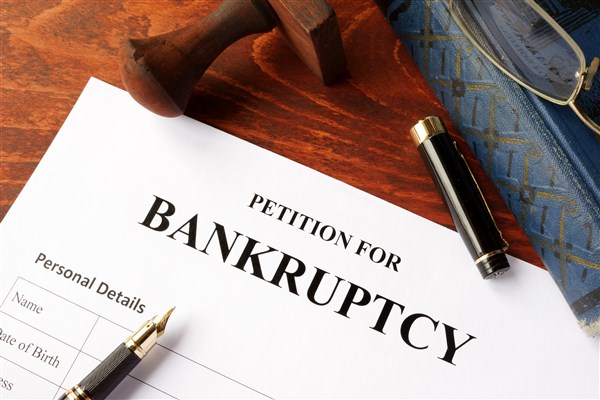Does Filing For Bankruptcy Mean ‘Out of Business’?
For a business owner, financial difficulties and other issues impeding their organization’s progress can be very stressful. If such issues lead to filing for bankruptcy, does that mean the organization will go out of business?
Not necessarily, says Mary Joyner, attorney with Jennis Morse. The future of a business after a bankruptcy filing depends on that organization’s goals, specific circumstances, and how the company is structured. Also to be taken into consideration is whether the owner is filing for personal bankruptcy, or if the company is filing, or both.
Separate Entity or a DBA?
There are solid options available for companies filing for bankruptcy when they want to stay in business. Whether a company is a separate entity of its own, like an LLC (Limited Liability Company), or a DBA (Doing Business As), the company can stay in business and use that income to reorganize.
In the case of a DBA business, if either the owner or the business files for bankruptcy, Jennis can restructure the debt, so the organization continues operating as normal, says Joyner. A primary goal is to help the business be able to make payments to employees and creditors.
If the corporation is a separate entity from the owners, such as an LLC or corporation, the company can continue operating if the owner files for bankruptcy — because the business is separate. The same generally applies if an LLC or corporation files for bankruptcy. Many businesses continue to operate while in bankruptcy proceedings, with the goal of using income to avoid a complete collapse, help solve financial problems, and achieve a solid financial standing for the organization.
“Business As Usual” During Bankruptcy
A company’s day-to-day operations during bankruptcy might appear identical to pre-bankruptcy, at least to employees and clients or customers. Maintaining “business as usual” can be an important part of a company’s strategy, depending on its goals and dynamics.
Those parameters can be very different, depending on the organization. That’s because there can be many reasons to file for bankruptcy, Joyner notes. A few examples include:
- Trying to grow too quickly
- A downturn in a market or economy
- External forces, such as the COVID-19 pandemic, which can affect supplies, employees, and customers
The role of the Jennis team is to determine the factors leading to a client’s bankruptcy filing and explore ways to mitigate the challenges. This can include making new deals with creditors and vendors, creating more amenable contracts, reorganizing debt, and discerning other financial measures. Jennis attorneys act as consultants to create the best outcome for each client — with a strategic approach rather than one that is simply tactical.
Bankruptcy Does Not Have to Affect Employees
It’s possible for employees not to be impacted by a bankruptcy filing at all, notes Joyner. Jennis can work with the owner or leadership team to discuss how to best communicate the bankruptcy filing to employees. Because employees are a priority during a bankruptcy, one of the first things Jennis does is to seek authorization by a judge to continue payroll. Judges understand that if there are no employees, there is no company. The most common goal after a bankruptcy filing is determining how to keep the business going.
A valuable variant of bankruptcy law, the Sub-V Chapter 11, took effect in February, 2020. Sub-V filings allow businesses to restructure and reorganize their debt over three- and five-year periods while continuing to operate. The debt ceiling is less than for standard Chapter 11 cases. This change in the bankruptcy code has provided another tool for small businesses to find solutions and emerge from financial challenges.
Solutions Based On Client Goals
Since the focus of Jennis attorneys is to deliver the best result based on each client’s goals and parameters, the strategy may not be for the company to stay in business. In some cases, the best way forward may be for the company to shut down. The Jennis team can guide clients in the best way to pursue this outcome.
Additionally, clients may have multiple or even contradictory goals, with them all not achievable at the same time. Multiple sessions of discovery may be required to determine the best plan of action.
The Jennis team’s value in these situations lies in helping clients clarify and prioritize goals, then leveraging the legal team’s experience and expertise to determine and execute the best path forward to reach the goals.

